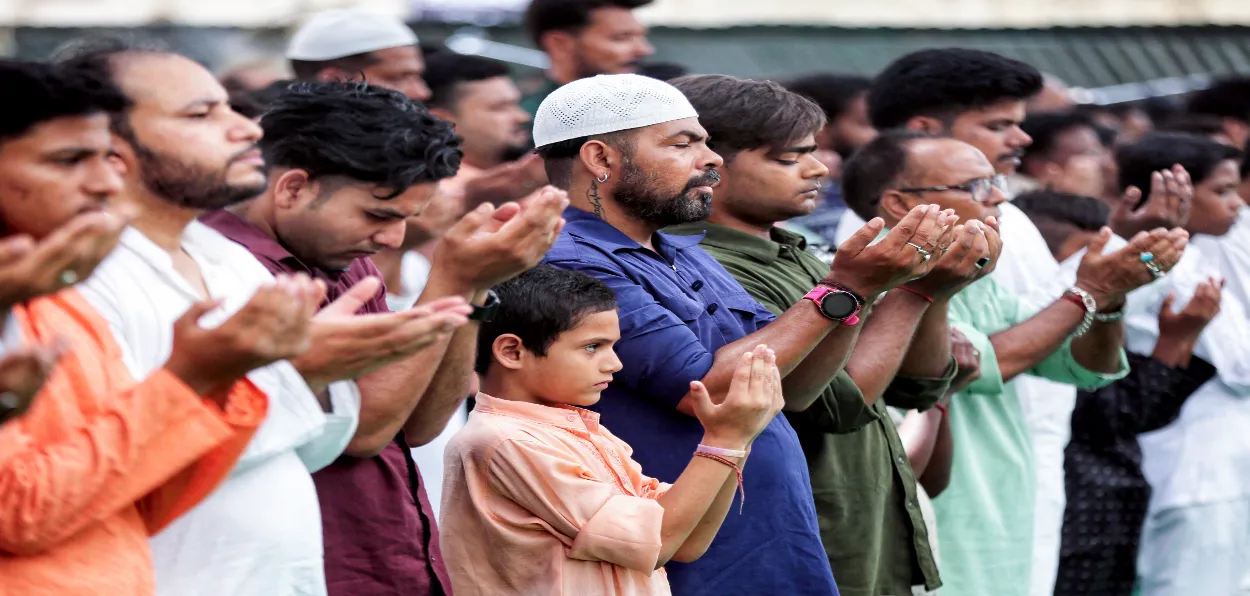
Eman Sakina
Islam’s vision of human rights is holistic, timeless, and universal. It transcends the limitations of modern human rights discourse by linking justice and equality to divine accountability. The Qur’an and the Prophet’s teachings call humanity to uphold the dignity of every person, protect the weak, and promote fairness in all spheres of life.
Friday Musings
In a world still grappling with inequality, discrimination, and injustice, Islam’s message remains as relevant as ever. True peace and progress can only be achieved when societies embrace the principles of justice, compassion, and equality—values that lie at the heart of Islam’s message to humankind.
The teachings of Islam, derived from the Qur’an and the Sunnah (the sayings and practices of the Prophet Muhammad), advocate for the protection of human rights in every sphere of life—whether social, political, economic, or spiritual. The Islamic approach to human rights is deeply rooted in the belief that all human beings are creations of Allah, equal in their humanity, and accountable to Him alone.
The concept of human rights in Islam originates from the fundamental principle of ‘tawheed’—the oneness of Allah. Since Allah is the Creator and Sustainer of all beings, no one has the right to claim superiority or dominion over others except through piety and righteousness. The Qur’an clearly states:
“O mankind! We created you from a male and a female and made you into nations and tribes so that you may know one another. Verily, the most honourable of you in the sight of Allah is the most righteous of you.” (Qur’an 49:13)
This verse serves as a universal declaration of human equality. It emphasises that differences in race, ethnicity, or nationality are meant for identification and cooperation, not discrimination or oppression.
Justice (‘adl) lies at the heart of Islamic teachings. The Qur’an commands Muslims to be steadfast in justice, even if it goes against their own interests or those of their family: “O you who believe! Stand out firmly for justice, as witnesses to Allah, even though it be against yourselves, your parents, or your kin...” (Qur’an 4:135)
In Islam, justice is not limited to legal fairness but extends to every aspect of human interaction—economic transactions, governance, family relations, and even one’s internal thoughts.
One of the most profound contributions of Islam to human civilization is its insistence on the inherent equality of all human beings. Fourteen centuries ago, when social hierarchies, slavery, and gender-based discrimination dominated the world, Islam introduced a revolutionary vision of equality. The Prophet declared during his Farewell Sermon: “All mankind is from Adam and Eve. An Arab has no superiority over a non-Arab, nor does a non-Arab have any superiority over an Arab; a white has no superiority over a black, nor does a black have any superiority over a white—except by piety and good action.”
This timeless declaration dismantles all artificial barriers of race, ethnicity, and status. It affirms that the worth of a person is measured not by wealth or power but by moral character and devotion to God.
Contrary to popular misconceptions, Islam elevated the status of women and protected their rights at a time when they were denied basic dignity in most societies. Women were granted the right to inheritance, ownership, education, and participation in public life. The Prophet said:
“The best of you is those who are best to their women.”
Similarly, Islam defends the rights of orphans, the poor, the disabled, and all marginalised groups. The Qur’an constantly commands compassion and care for the weak, emphasising that social justice is a reflection of one’s faith.
Islam’s vision of human rights encompasses economic equity and the equitable distribution of wealth. The institution of Zakat (obligatory charity) ensures that wealth circulates and the poor are cared for.
ALSO READ: 10 unforgettable emotional moments from Women's World Cup victory
Every act of oppression or injustice is not only a crime against society but also a sin before Allah. This spiritual dimension strengthens moral responsibility and prevents abuses of power, as rulers and citizens alike are answerable to God.
